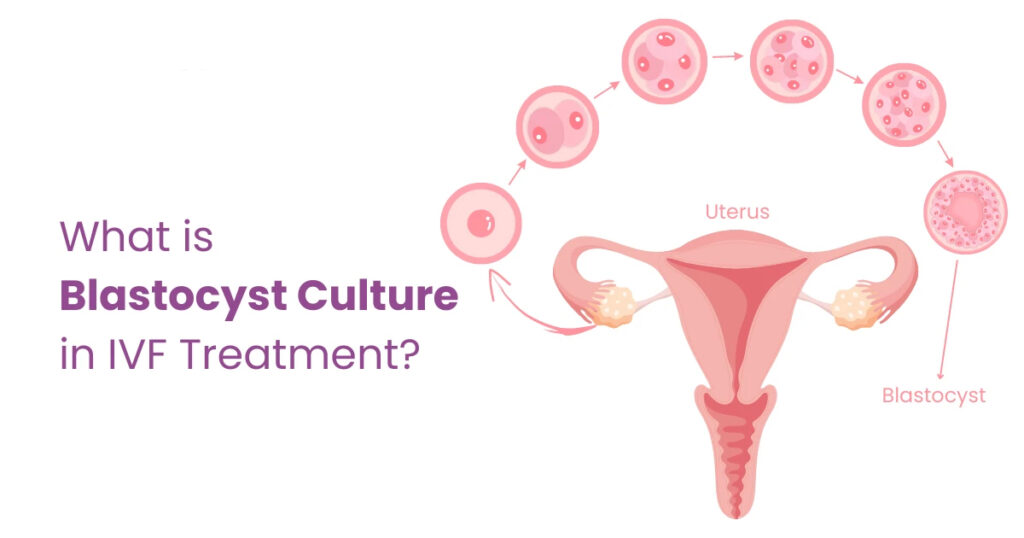Blastocyst Culture is an advanced IVF technique that mimics the natural growth process of embryos. In a natural cycle, fertilized eggs travel through the fallopian tubes, reaching the uterus by day 5. At this stage, embryos have a higher chance of successful implantation after hatching from their protective shell (zona pellucida). By adopting Blastocyst Culture, implantation rates double compared to traditional day 2 embryo transfer (ET).
Our IVF laboratory is fully computerised with microprocessors for all equipment inclusive of alarm system and AI assisted- with the latest technology for Embryo culture, embryo transfer, and embryo freezing. With experienced physicians and globally trained embryologists, we provide year-round IVF services and 24/7 patient care, ensuring a safe and comfortable experience.
Why Choose Blastocyst Culture?

1. Egg Retrieval & Fertilization
The process begins with ovarian stimulation, where medications help produce multiple mature eggs. The eggs are retrieved and fertilized with sperm through conventional IVF or intracytoplasmic sperm injection (ICSI).
2. Embryo Development
Once fertilization occurs, embryos are cultured in a specialized laboratory environment. The first few days are critical as the embryos divide and grow, transitioning from a single-cell zygote to a multi-cell structure.
3. Culturing to Blastocyst Stage
Embryos that reach day five or six and develop into blastocysts are observed carefully. Embryologists assess factors such as cell differentiation and expansion to identify the healthiest embryos.
4. Embryo Selection & Transfer
High-quality blastocysts are selected for transfer into the woman’s uterus. The selection is based on developmental characteristics and grading criteria to maximize implantation success.
5. Embryo Freezing (Optional)
Extra blastocysts that meet quality standards can be cryopreserved (frozen) for future use through vitrification, a rapid-freezing process that maintains embryo viability.
6. Pregnancy Test
Approximately 10-14 days after embryo transfer, a blood test is conducted to determine if implantation has occurred, confirming pregnancy.






